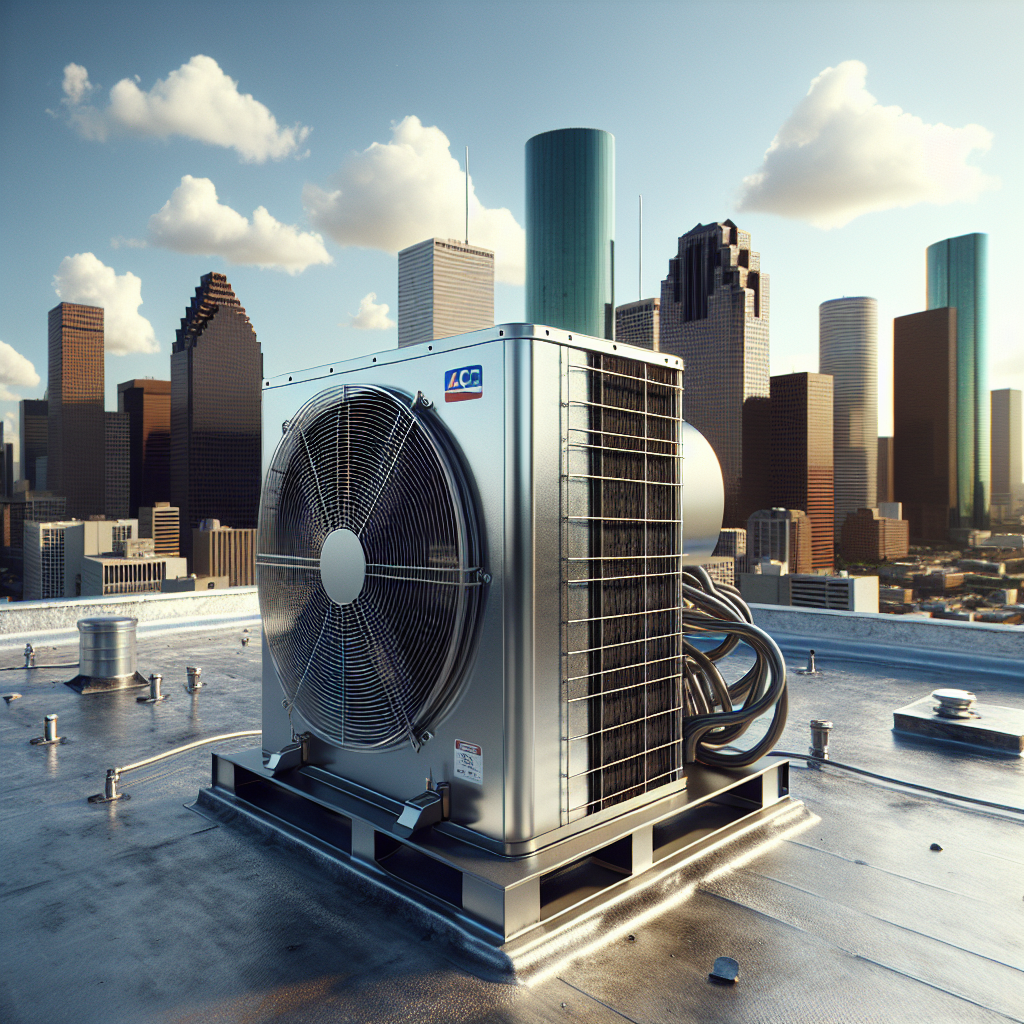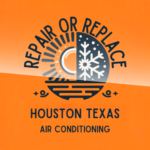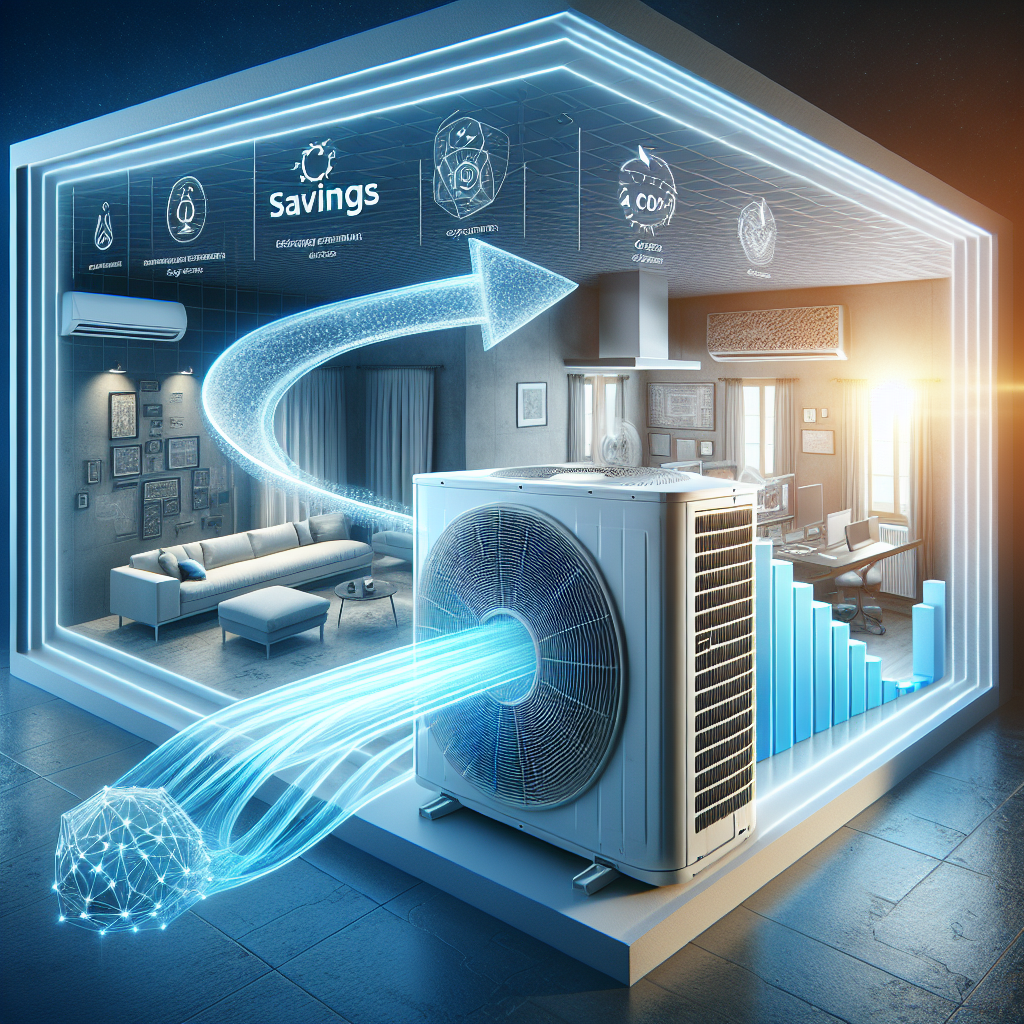If you’re living in Houston, it’s likely you’ve given a thought or two to how long that essential cooling companion of yours will hang around. Under the sweltering sun and sticky humidity of this city, air conditioning systems typically last between 10 to 15 years.
Knowing this timeframe is important for planning future expenses, whether you’re setting aside some cash for a new unit or scheduling regular check-ups to keep your current one in tip-top shape.
Staying on top of potential issues allows you to enjoy the summer heat without the unexpected headaches.
Compared to national averages, which usually reach about 15 to 20 years depending on maintenance and unit type, the intense climate here can accelerate wear and tear on your HVAC unit. So, it is essential to prioritize regular maintenance to enhance the operational efficiency and lifespan of your HVAC unit, especially regarding air conditioning.
Click here to learn more about: prices.html
Factors Affecting HVAC Unit Lifespan
Understanding the average lifespan of your HVAC unit is key, but several factors really shape how long your cooling system will last. One of the biggest players is regular maintenance. Keeping up with routine check-ups can help catch small issues early on, which means fewer hefty repair bills in the future.
Simple tasks, like swapping out air filters and cleaning coils, not only help with performance but also boost energy efficiency. This way, your system keeps running smoothly and your indoor comfort stays just right.
Local climate conditions also play a significant role. If you’re dealing with the Texas heat and humidity, your HVAC unit faces a lot of demands, making proactive upkeep essential. Seasonal checks reveal how well your system adapts to changing weather patterns, which might bring unexpected wear and tear.
Now, if your HVAC unit is running daily, it’s going to face more wear and tear over time. Larger homes that lack proper insulation can put even more strain on your compressor, condenser, and evaporator, leading to increased repair frequency and reduced energy efficiency.
So, keeping an eye on maintenance, understanding local conditions, and being aware of your system’s usage frequency can make a real difference. This combination helps ensure your HVAC unit can enjoy a long and effective lifespan, giving you peace of mind and comfort in your home.

How Does Texas Heat Impact Longevity
When we talk about the extreme Texas heat, it’s easy to see how it can really take a toll on your HVAC systems. With temperatures often soaring over 100°F during the summer, your cooling system is constantly working hard to keep your home comfortable. This relentless demand can lead to wear and tear on vital parts of your unit, like the compressor and evaporator.
This ongoing stress doesn’t just affect performance; you might notice your energy bills climbing or your system struggling to maintain cool indoor temperatures. Regular seasonal checks become essential here. By giving your cooling system the attention it needs, you’re investing in its energy efficiency and ultimately helping it last longer. A well-maintained HVAC unit is much better equipped to handle the hot Texas climate without it costing you a fortune in repairs.
Think of maintenance like a guardrail for your home comfort solutions. It can significantly cut down on how often you need repairs, helping to keep your unit running sweetly for many years. With simple steps like routine inspections and replacing air filters when needed, you can shield your HVAC unit from the harsh elements and extend its lifespan. Remember, a little care goes a long way in ensuring your system performs well, even when the Texas heat is at its peak.
HVAC Systems in Texas
- Texas experiences some of the highest temperatures in the U.S., often exceeding 100°F during summer months.
- Regular maintenance can reduce HVAC system breakdowns by up to 95% and improve efficiency.
- Ignoring seasonal checks can lead to energy bills that are 30% higher than necessary due to inefficient system performance.
- HVAC systems typically last 10-15 years, but proper maintenance can extend their lifespan significantly.
Importance Of Regular Maintenance Checks
Let’s chat about why keeping up with your HVAC unit’s maintenance is super important, especially in the crazy Texas heat! Your air conditioning system is like any other important appliance at home—it needs a little love to keep running smoothly, especially during those scorching summer days.
First off, think of regular maintenance checks as your system’s annual doctor visit. Just like we go for health check-ups, your cooling system deserves a thorough lookover to stay in great shape.
One of the biggest perks of these routine inspections is spotting potential problems early on. For instance, a tiny refrigerant leak can escalate into a major issue if it gets ignored. Regular check-ups can catch these tiny issues or worn-out parts before they become big—and often expensive—headaches. Keeping an eye on your system’s cooling capacity now can really help you avoid stress and save money later on.
And let’s talk about energy efficiency. Keeping everything, from the compressor to the evaporator, in top condition helps lower those utility bills. A well-maintained cooling system doesn’t just work better; it follows the manufacturer guidelines, which in turn extends the lifespan of your unit.
Also, while you’re staying on top of maintenance, don’t forget to consider aspects like replacement costs and home warranties. Keeping up with your system not only boosts its operational efficiency but also enhances indoor comfort. Each seasonal check and routine inspection makes a difference in how comfortable your home feels and can save you some cash in the long run.
Signs Your AC Compressor Needs Repair
After chatting about how important regular maintenance checks are, let’s look at what happens when your HVAC unit starts to act up. Keeping an eye out for warning signs can help you avoid those frustrating repair bills and make sure your air conditioning system keeps things cool during the sweltering Texas heat.
Spotting these key indicators is essential for keeping your system running smoothly and boosting its lifespan.
Unusual Noises: If your AC sounds like it’s auditioning for a horror flick, it’s time to take notice.
Sounds like grinding, hissing, or clanking can point to serious internal issues or worn-out parts that need quick attention. Another big red flag is a drop in your cooling capacity, which could be due to factors like system age or the quality of the installation.
Ignoring these strange noises might lead to bigger problems later, which can really drive up repair costs. Staying current with maintenance—like routine inspections and changing air filters—can boost your system’s operational efficiency by up to 30%, making sure that it performs reliably even in tough climate conditions.
Air Conditioning Maintenance
- Regular maintenance can extend the lifespan of your AC unit by up to 15 years.
- Ignoring unusual noises can lead to more serious problems, resulting in expensive repairs.
- Proper installation and following manufacturer guidelines can enhance cooling efficiency by 20-30%.
- Annual check-ups can catch potential problems early, saving you money in the long run.
Understanding Cooling System Replacement Costs
Now that we’ve talked about how regular maintenance checks can extend your HVAC unit’s lifespan and when it’s time for a repair, let’s get into an important detail: the costs tied to replacing your air conditioning system. Knowing these expenses upfront helps dodge any financial headaches later on.
Unit size is one of the biggest factors affecting replacement costs. Larger units typically come with a larger price tag, but they also promise better energy savings and effective cooling capacity. Choosing a unit that’s too small can leave you frustrated, as it will struggle to keep your space cool, resulting in wasted energy and higher utility bills.
Installation fees are another key player in the total costs. These can vary drastically based on installation quality, how complex the system is, and even the going labor rates in your area. You might be looking at costs ranging from a few hundred to thousands of dollars. Factor in the system age, and whether you’re deciding between repair vs. replace, along with energy efficiency ratings and air filter requirements.
Next up is energy efficiency. While an air conditioning unit that hits high energy efficiency ratings might cost more at first, it can mean significant savings on your utility bills over time. Going for a cooling system that follows manufacturer guidelines for both installation and operation can really help maximize its longevity and performance.
Lastly, make sure you think about any potential warranty coverage when looking at replacement costs. A solid home warranty gives you peace of mind, knowing that some repairs or replacements may be covered later. By keeping all these factors in mind, you can make smarter choices about your air conditioning system, ensuring both comfort and cost-effectiveness for many years ahead.
Enhancing Energy Efficiency For Longer Life
Regular Maintenance Matters
Now that we’ve looked at why regular maintenance is crucial and the costs that come with replacing your air conditioning system, let’s talk about how you can improve energy efficiency for a longer life of your HVAC unit. Keeping your heating and cooling system in tip-top shape not only boosts your home comfort but also saves you some cash. One effective way to do this is by scheduling routine inspections.
Catch Problems Early
These maintenance visits help spot minor issues before they turn into expensive repairs, which can help prolong your system’s lifespan overall. It’s wise to have your technician check the refrigerant levels and filter cleanliness during these assessments. Keeping air filters clean can really make a big difference in how well your system runs.
Consider Upgrading
If you’re ready for a bigger change, upgrading to models that are more energy-efficient can be a game changer. While it might feel like a big expense at first, the savings on your utility bills can stack up nicely over time. New systems are built to use less energy, leading to noticeable drops in your monthly bills.
Insulation and Weatherization
Don’t forget about insulation and weatherization in your home! Good insulation works closely with your HVAC system, ensuring it performs at its best and provides more energy savings. This helps maintain indoor comfort regardless of the climate conditions outside.
Smart Thermostats for the Win
Investing in smart thermostats can also help you manage your system’s operation based on your cooling needs, giving you more comfort while lowering unnecessary energy use. By using these strategies, you can enhance your system’s operational efficiency and guarantee it will work well for many years, even in the scorching Texas heat.
Role Of Ductwork In Air Conditioning Systems
Having a well-designed ductwork system is just as important as picking a solid HVAC unit. This network of pipes carries cool air from your air conditioning system and plays a major role in making sure your home stays comfortable throughout the year.
When everything is installed and kept in good shape, those annoying hot or cold spots are a thing of the past. But if your ductwork has leaks or isn’t set up correctly, it can really mess with airflow, which might lead to discomfort and possibly even emergency repairs.
Focusing on this part of your setup can greatly improve the operational efficiency of your cooling system. Ducts that are in good condition help lower energy use, giving you extra savings on utility bills and a smaller environmental impact. Regular maintenance is a must since dirt and debris can pile up over time, blocking airflow. A clean and well-maintained duct system is crucial for avoiding emergency repairs, optimizing system diagnostics, and making sure that smart thermostats work well with both split systems and central air.
To boost energy efficiency and comfort in your home, think about getting inspection and cleaning services. A skilled technician can identify hidden problems and make sure your ducts are doing their job effectively. This kind of preventative maintenance pays off by extending the lifespan of your air conditioning system and improving its overall performance. Remember, a well-functioning ductwork system not only enhances indoor comfort but also contributes to the longevity of your HVAC investment.
What Are Seasonal Checks For AC Units
Now that we’ve talked about why a solid ductwork system and efficient HVAC units are crucial, it’s time to touch on seasonal maintenance checks to keep your air conditioning unit functioning at its best. Seasonal maintenance checks are key to ensuring your system runs smoothly, especially when that Texas heat hits.
These checks can help you avoid surprise breakdowns and could lead to noticeable savings on your utility bills by catching small issues before they turn into bigger problems.
Filter Changes: It’s super important to replace those air filters regularly to maintain good airflow and boost energy efficiency. Aim to swap them out every 1-3 months so your system keeps running smoothly. Seriously, your unit will appreciate it!
Refrigerant Levels: Keeping an eye on refrigerant levels is essential for the best cooling performance. If your home isn’t staying as cool as it should, or if you spot ice forming around your unit, those are big signs you’ve got refrigerant troubles. This can crank up your utility bills and mess with your HVAC unit’s environmental impact.
Air Conditioning Maintenance
- Regular maintenance can cut down the chances of unexpected breakdowns by up to 95%.
- Replacing air filters can boost energy efficiency by 5-15%.
- Low refrigerant levels can hike energy consumption by 20-30%, which leads to higher utility costs.
- Seasonal maintenance checks can extend the lifespan of your air conditioning unit by several years.
The Impact Of Indoor Comfort On System Performance
Finding the Right Balance
Building on the importance of well-installed ductwork and seasonal checks, let’s look at how creating a perfect balance in your living space can affect your climate control systems. When your indoor environment feels just right, it’s a sign that your HVAC unit isn’t being overworked, which reduces the chances of unexpected breakdowns.
Wellbeing and Productivity
Maintaining a comfortable atmosphere isn’t just a luxury; it plays a vital role in your overall wellbeing. When you’re cozy, you tend to be more productive and can enjoy your daily activities to the fullest.
Performance and Longevity
Fine-tuning the temperature in your home allows your residential units to perform at their best, making sure they not only last longer but also run with greater energy efficiency. On the other hand, constantly adjusting the thermostat to fight discomfort puts extra strain on your commercial systems and can lead to early wear.
Preventative Measures
Frequent thermostat adjustments mean your system is under stress, which can ultimately shorten its lifespan. It makes sense to think about energy star ratings when picking AC brands for both residential units and commercial systems. Those ratings offer insights into long-term repair or replace decisions along with possible replacement costs. Plus, always check service contracts to ensure they fit your climate conditions.
When To Consider Repair Vs. Replace
After highlighting the importance of keeping your home comfortable and watching how well your HVAC unit is doing, let’s dive into a big question: should you fix your old air conditioning unit or just go for a new one? This choice typically depends on a few key things, especially the age of your system and how efficiently it’s working.
First off, consider how long you’ve been using your AC unit. If it’s over ten years old, it’s time to really think about your options. Frequent repairs can stack up rapidly, especially if those costs start to resemble a big chunk of what a new unit would run you. Just imagine those crazy cooling demands during the blazing Texas heat; you definitely want your system up and running at its best without bleeding your budget dry on repairs.
Next, look at how well your system is performing. Older models might not measure up to today’s energy efficiency standards. If your AC is noisy and struggling to keep up with your desired indoor comfort, it might be time to consider a replacement. Choosing the right system now can provide you with quieter operation, healthier air quality, and overall better home comfort solutions. Plus, newer models usually offer improved performance, less noise, and a smoother installation process.
- Air conditioning units usually last about 10-15 years, so it’s important to check on older units.
- Frequent repairs could add up to 50% of what a new unit costs, making replacing it a smarter option.
- Newer air conditioning systems are built to run more efficiently, meaning better energy savings.
- Switching to a new unit can enhance air quality and keep noise levels down in your home.
How Much Should I Spend On An AC Unit For Comfort
How Much Does A New AC Unit Cost In Texas


